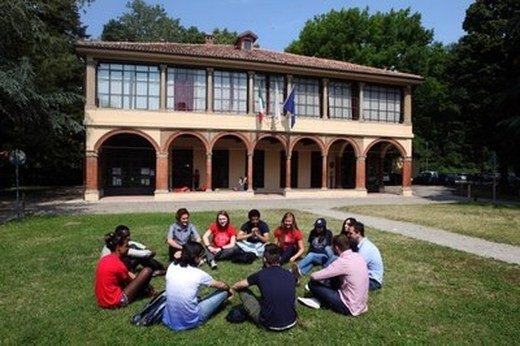University of Bologna
The origins of the University of Bologna go way back, and it is considered to be the oldest university in Italy. Its history is intertwined with that of the great names of science and literature; it is a keystone and a point of reference for European culture. Apply and enjoy Italy's fascinating and rich culture for one semester!

Information about the university
Bologna is the capital and largest city of the Emilia-Romagna Region in Northern Italy. It is the seventh most populous city in Italy, at the heart of a metropolitan area of about one million people.
The University of Bologna is organized on a multi-campus structure. Courses and research activities are held in five differnt campuses/cities: Bologna (the main campus), Cesena, Forlì, Ravenna and Rimini.
The School of Engineering and Architecture and the Department of Civil, Chemical, Environmental and Materials Engineering (DICAM) is organized in two school complexes near the main campus.
UiS has an Erasmus + agreement within Engineering
Language of instruction
Language requirements
English proficiency recommended at minimum B2 level (read upper-intermediate = 4 in English from “vgs” for Norwegian students). Please refer to the Common European Framwork of Reference for Languages for further information.
Students who do not meet the language requirements will be offered online language courses prior the exchange period.
The University of Bologna offers courses in italian to exchange students.
GPA requirements
Total number of exchange places
Tuition fee
Scholarship
Erasmus+-grant in combination with loan and grant from Lånekassen for eligible students
Academic year
Autumn semester: From mid-September to late February (exams between January and February)
Spring semester: From late February to mid-September (exams between June and September)
How to find subjects
Course catalogue.
Students may choose courses from Offshore Engineering, Chemical and Process Engineering, Civil Engineering and Environmental Engineering.
Credits abroad
Accommodation
The Students Accomodation and Information Service (SAIS) supports exchange students in finding accommodation in the university residences, colleges, short-stay accommodation or in private rented property. SAIS also provides non-EU citizen students with the certificate of housing availability, which is a prerequisite for the issue of an entry visa.